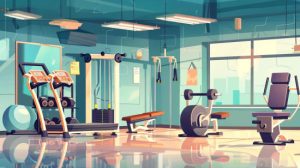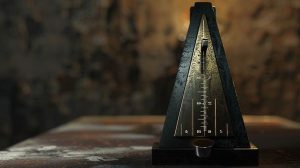
My AI on how to be a better jazz improviser
I have created a AI chatbot called Jazz Master Chat that draws from 75 hours of interviews from my Jazz Master Summit event a couple of years ago. I interviewed
Categories:
Categories:
The title of this post reflects the majority of responses I received recently when I asked the question of 1,500 musicians: What are you struggling to accomplish with your jazz playing
Some people put it in terms of playing solos that were more inventive or riveting, or creative. One respondent wrote, “Combining ideas into melodies rather than just a series of notes.” But the common struggle is to spontaneously compose musically satisfying lines over a given harmony.
The question I ask myself is, how does one teach that? Well, I have some ideas for you.
While reading the responses from frustrated musicians, I see two common issues. 1. Having quality musical ideas in one’s mind to begin with, and 2. projecting those ideas out of one’s instrument.
I think the second challenge comes after the first, and I’ve devoted many exercises to that challenge. But let’s start with number one since, without any good musical ideas, there’s nothing to project out of the instrument. One could always memorize phrases and patterns to string along over chord changes. That type of improvisation isn’t true composition but done in the hands of a skilled instrumentalist, it can sound jazz-like and impressive.
I think that type of playing requires some amount of musical instincts since the thread holding together the various pieces of the quilt has to weave its way musically and logically from one phrase or lick to the next. The rhythm of those memorized phrases has to be played with a certain amount of style.
But I don’t think this is what most players are seeking. I sense that their struggle is to spontaneously compose meaningful music. One player wrote that he wants to play music as effortlessly as he speaks.
I think the speaking analogy is instructive. What could be the difference between an articulate speaker and someone who, umm, struggles with umm, finding the right… what do you call them? Ah… words? My guess is that the articulate speaker is probably well-read. She’s spent a lifetime reading classic literature and well-written books and articles. And she’s probably done a fair amount of public speaking and writing and has developed a large vocabulary.
She has also been speaking her entire life and done so every single day. I read a study that claimed the average person speaks 16,000 words each day. That’s a lot of practicing! And think how many words we hear other people speak. So our days are filled with our own speaking and that of others, many of whom are on TV, radio, film, or video and probably very articulate or at least reading of well-written scripts.
This leads to the conclusion that part of the musical skill people are seeking must originate from a lot of practicing and listening. Consider the activities you could do on a regular basis to build your musical vocabulary:
Now, this list came pretty easy to me because, throughout my life, I’ve done all of these things. I didn’t decide to write books or make videos in order to improve my improvisation, but those activities definitely paid off for me. I’ve become a better player because of doing these things. Even writing this post will rub off on me in some way that will improve my playing abilities.
Compare that list to the activities you probably do on a daily basis relative to speaking and in the process becoming more articulate:
Depending on your profession, this could be a much larger list. Imagine being an attorney or an actor or a salesperson, for example.
Hopefully, you understand the parallel. We spend our lives speaking and listening to speech far more than we do playing our instrument and listening to music. All this depends on your profession and lifestyle. If you are a full-time member of a symphony, you are doing a lot of listening. More than speaking and listening to speech, however? Probably not.
It should be obvious by now that my recommendation is to more fully immerse yourself in music and do so in a wider variety of activities. My list above of musical activities is a good place to start, or to add to your existing immersion. Transcribe and memorize solos – not for regurgitating them as you improvise, but as a way to plant more and more music inside your brain.
If you were a prodigy, the music might have somehow found its way into your soul from birth, and you are a fountain of musical expression. But if you don’t happen to be Joey Alexander, I think there are ways to plant the music inside yourself so that it can be commanded to flow at will. I think this is what you are hearing in the jazz players you admire and yearn to emulate.
I believe strongly that singing is the direct access to your musical being. Playing your instrument adds complication and friction to the music-making process. Using singing or whistling or humming, try these exercises for accessing the music inside you:
Try these things and ask yourself, how did the singing go? Did you hear the makings of satisfying musical ideas emerge through your singing? The quality of your voice doesn’t matter, so don’t get hung up on that. What matters is the quality of the musical ideas.
Singing is a direct reflection of the music inside you. Do these exercises and activities in part, to demonstrate to yourself that the music is actually inside you. You haven’t heard it because your instrument has been getting in your way.
Do these exercises also to create the neural connections in your brain that build the musical skills and ideas that you can draw from as you improvise.
This is not a quick fix. We live in an age of immediate gratification, so this recipe for becoming a more skilled musician and improviser may seem too long-term to be of use. But consider what you are asking of yourself: to spontaneously create a complete unique musical journey comprised of engaging musical ideas played over complex and rapidly changing harmonies. Is that skill worth you putting forth the time and effort? I’m afraid it won’t come without it.
As your musical ideas manifest themselves and develop, the next step is projecting them through your instrument, and I have a lot to say about that which I will share with you on the next post.

Trombonist, author, marketer, & tech guy
Share this post…

I have created a AI chatbot called Jazz Master Chat that draws from 75 hours of interviews from my Jazz Master Summit event a couple of years ago. I interviewed

What is jazz improvisation? Let’s first define what I mean by jazz improvisation. Jazz improvisation is a spontaneous conversation, but instead of words, we use notes. Look at two possible

As you improvise, how deep is your level of satisfaction? Do you feel confident? Do the lines coming from your instrument feel authentic to you or do you hear yourself

My recently turned 18-year old son is a passionate photographer. He’s got himself a little business where people pay

A couple weeks ago I sent Richie Beirach a YouTube clip from the movie Whiplash as a bit of

I originally meant to write this as a reply to a comment Richie Beirach wrote on my blog. But

Tools for helping musicians at all levels learn about jazz and play to their full capability.
Web design and marketing by:
Michael Lake @JazzDigitalMarketing.com
This is just a fake book example for the type of website I can build for you. Just trying to use a little humor here!